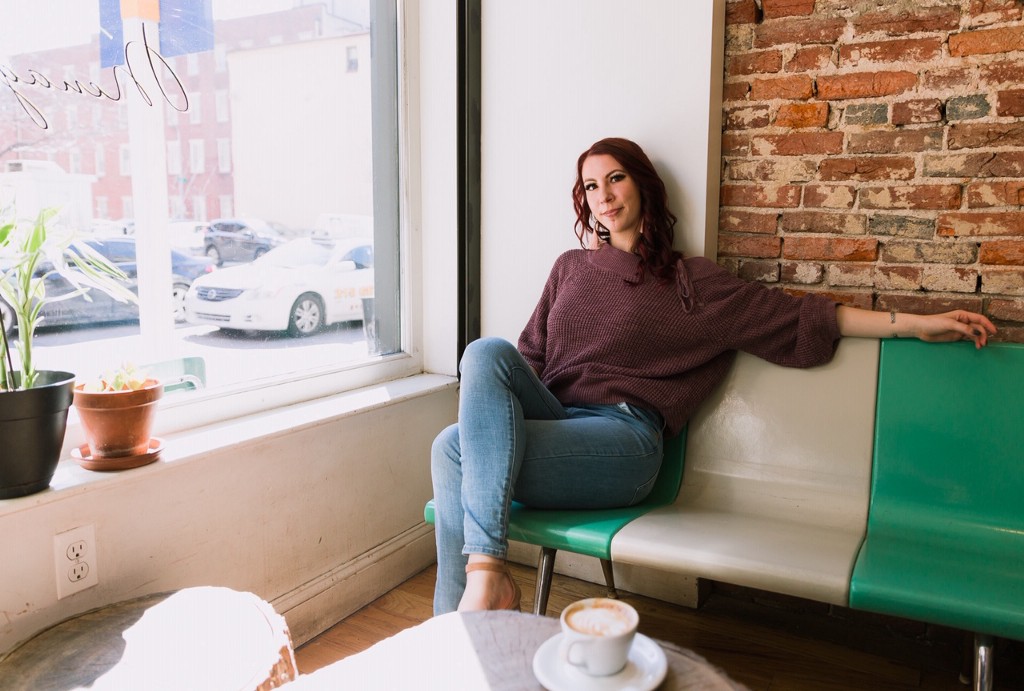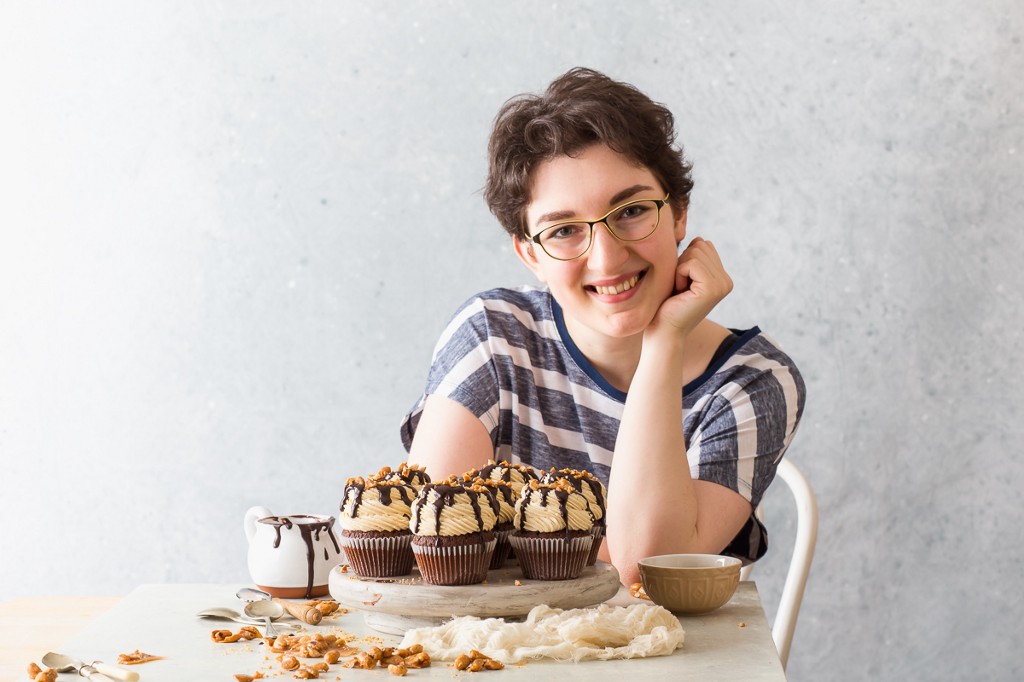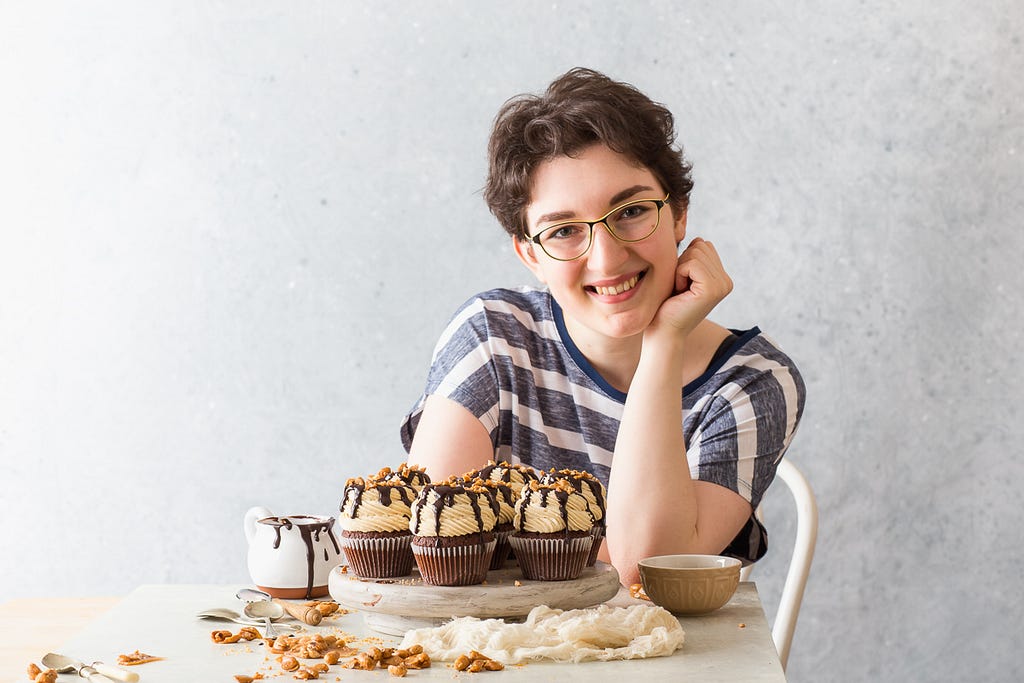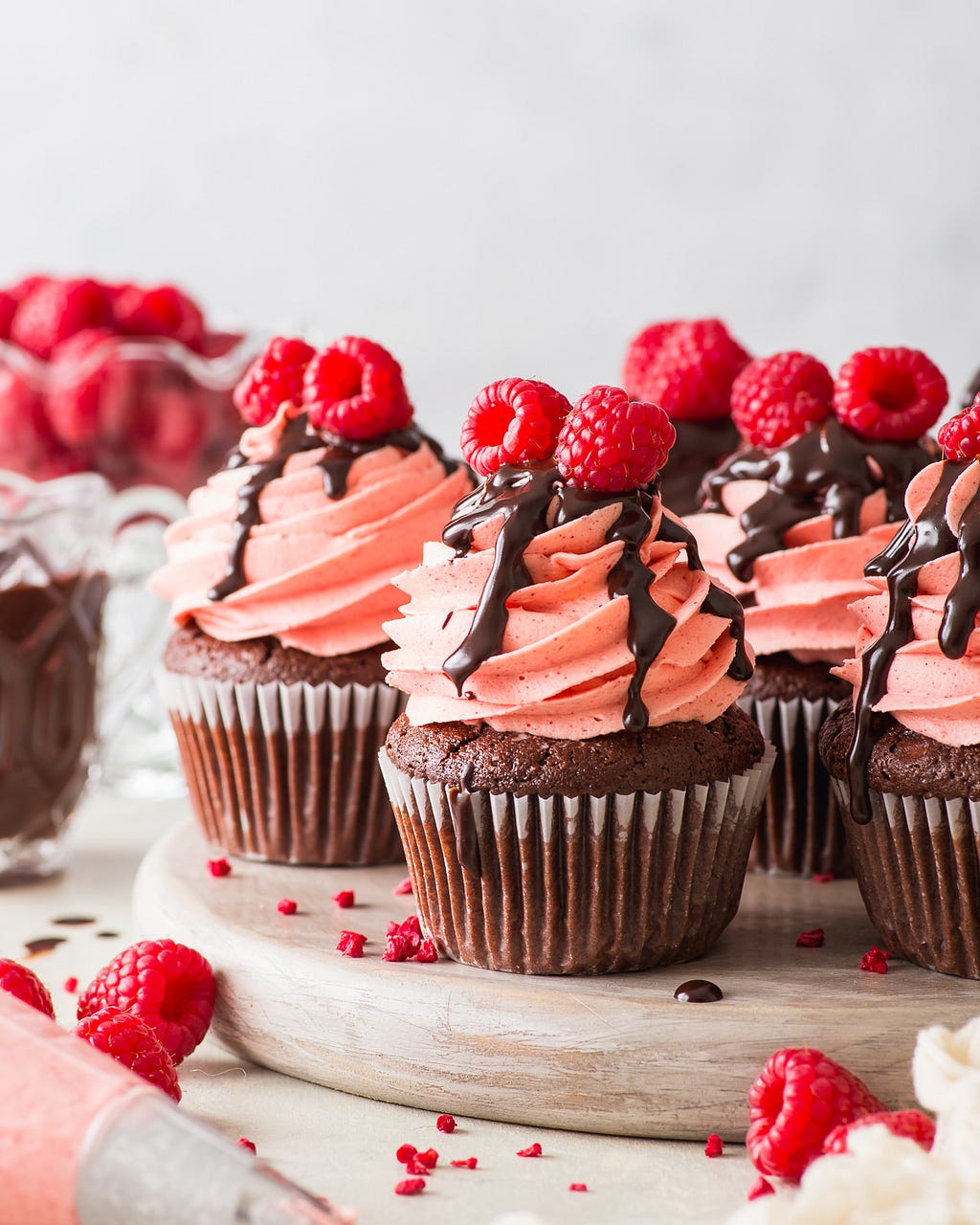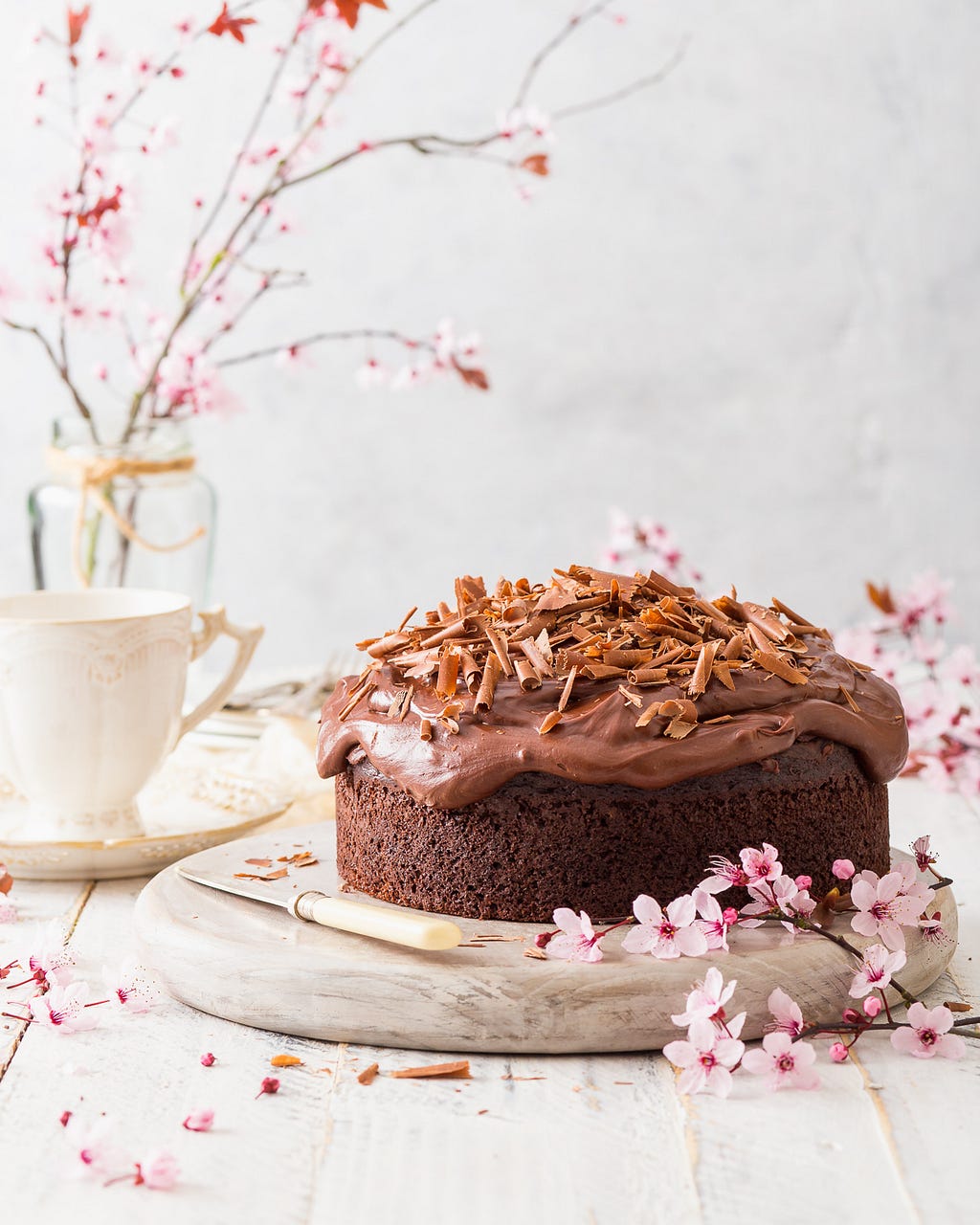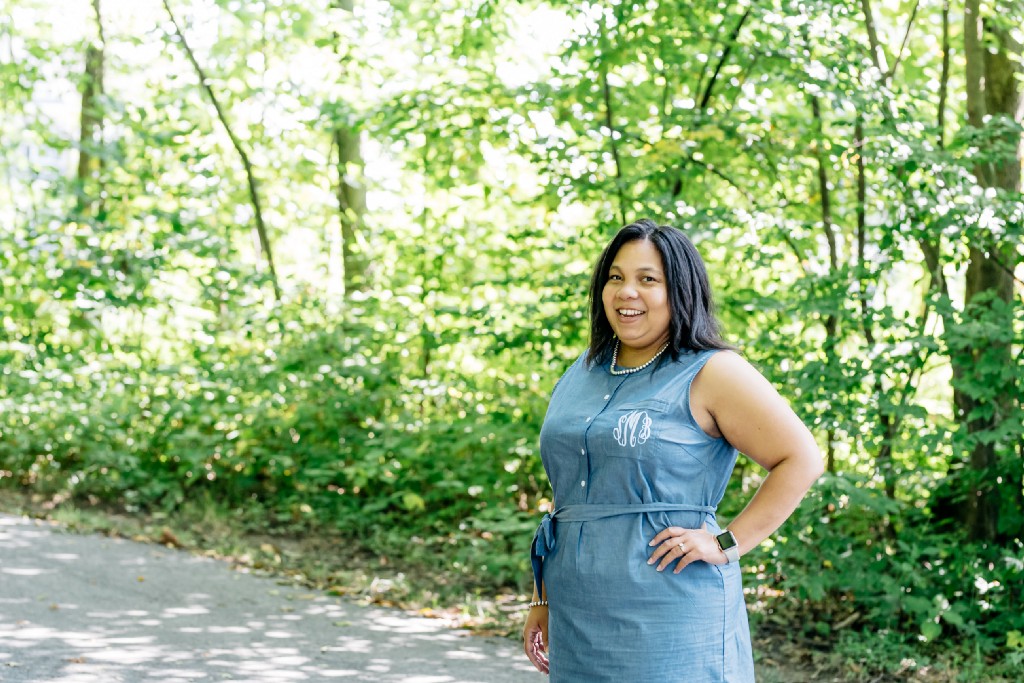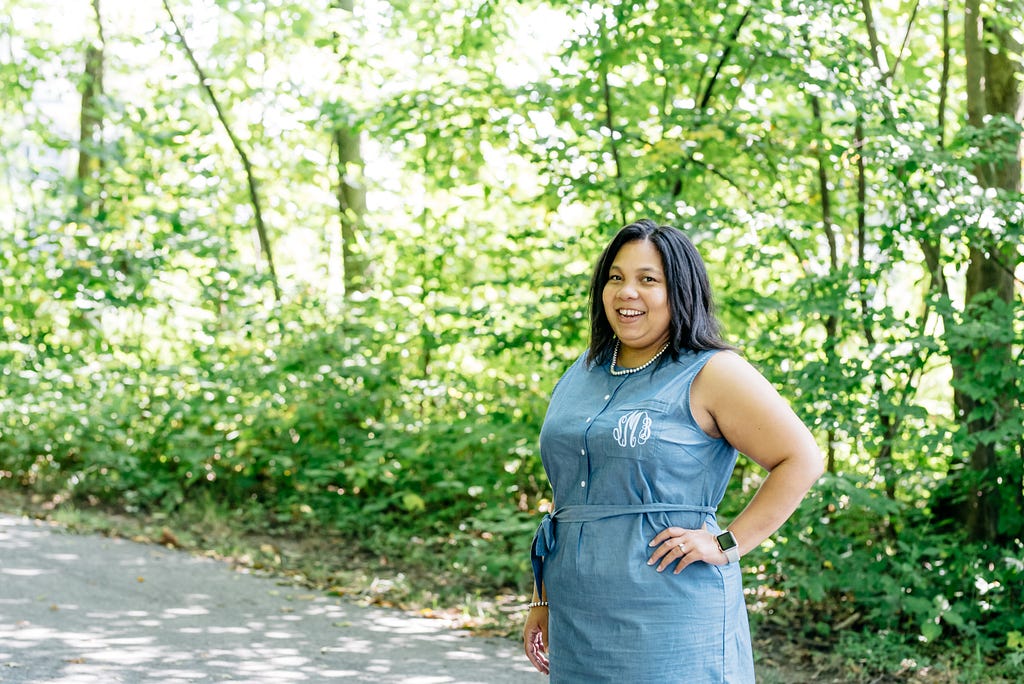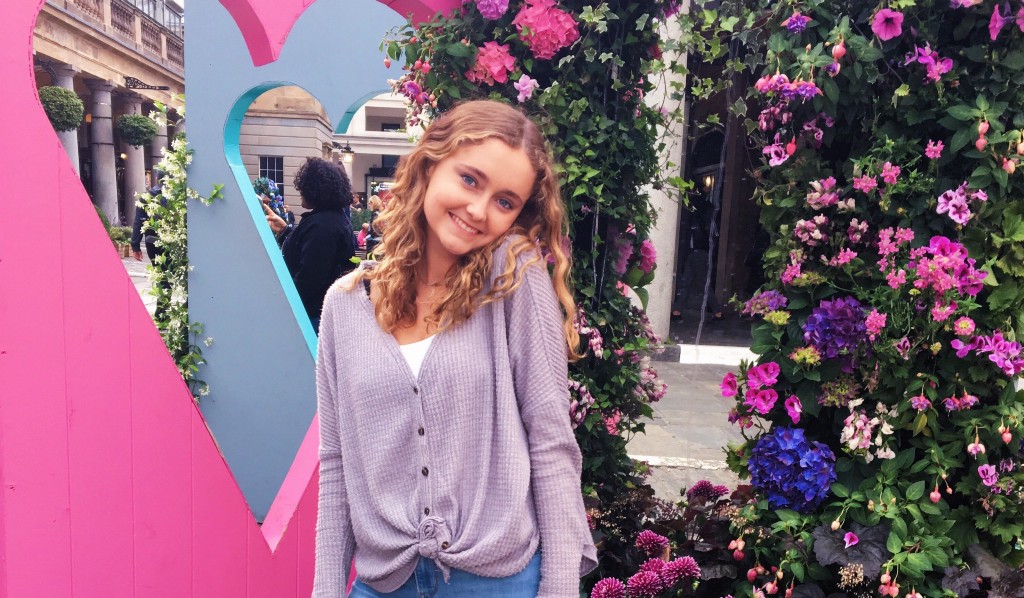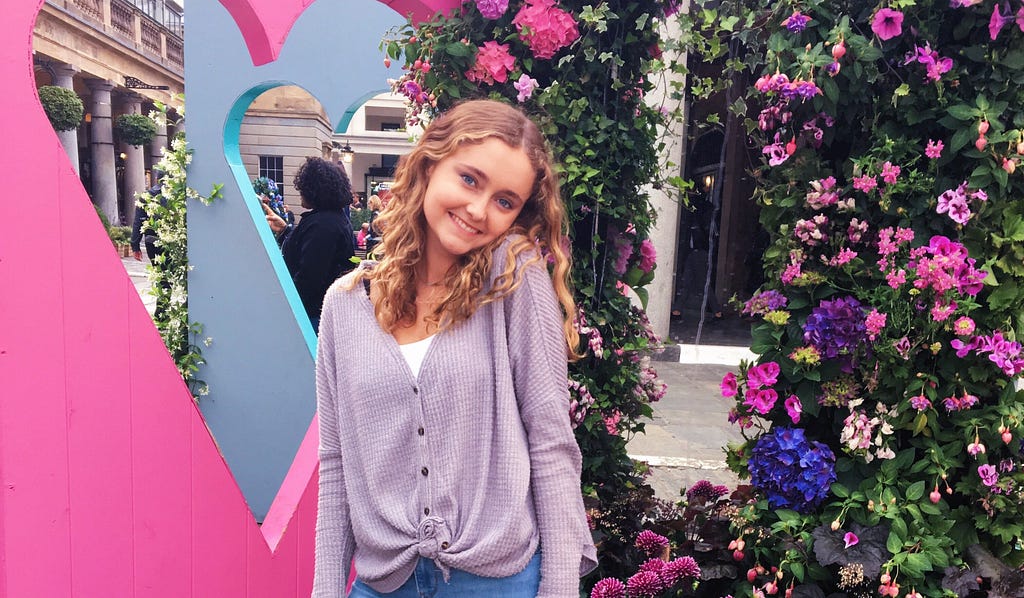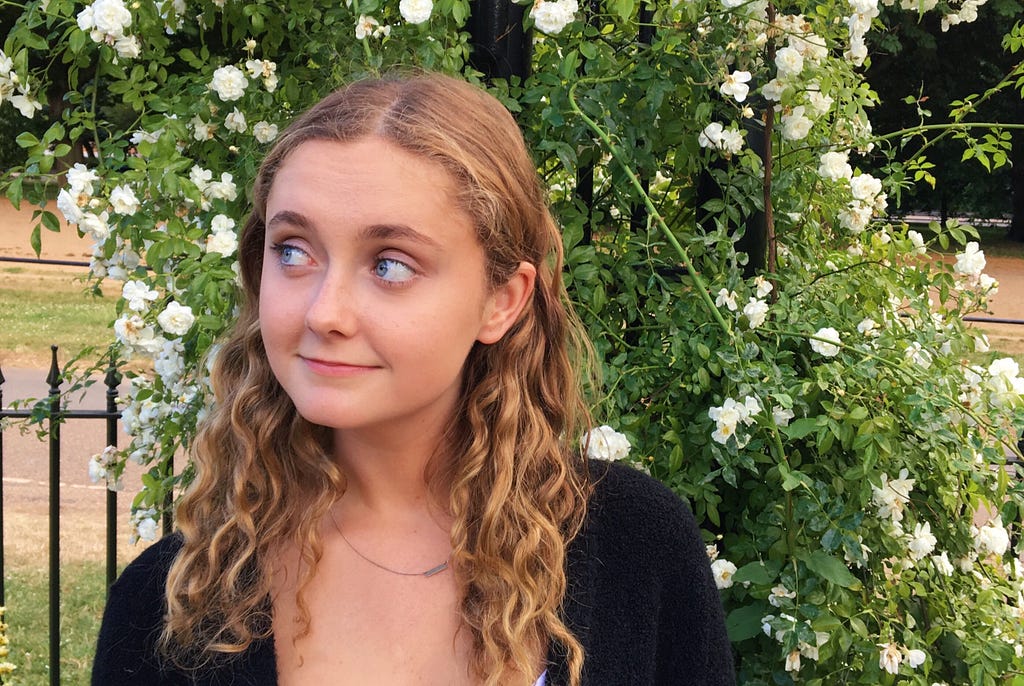The Social Impact Heroes of Social Media: “Not everyone will believe in you.” with Emily L. Depasse and Candice Georgiadis
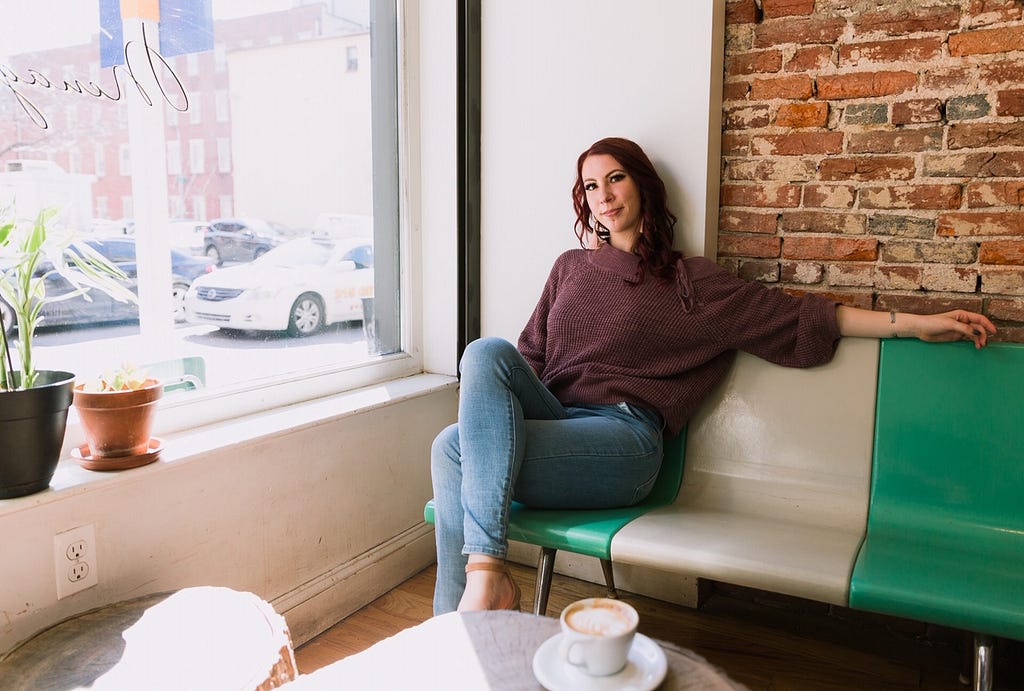
Not everyone will believe in you. I’ve been told that I would fail more times than I’ve been told I’d succeed. I’ve had men tell me to be less sexual in my work, or tone down the Carrie Bradshaw in favor of Jackie Kennedy. As a growing expert in human sexuality, I am still man-splained and critiqued on my field of expertise.
As a part of my series about social media stars who are using their platform to make a significant social impact, I had the pleasure of interviewing Emily L. Depasse (she/her), a Philadelphia-based sexologist and writer redefining the narratives around sexually transmitted infections (STIs). Popularly known as SexELDucation on Instagram and Twitter, Emily utilizes her online presence as a platform for STI inclusive sex education. She is currently pursuing her MSW and MEd in Human Sexuality Studies as a future sex therapist at Widener University.
Thank you so much for doing this with us! Can you tell us a story about what brought you to this specific career path?
I didn’t grow up wanting to be a sex therapist or sexuality student. I grew up wanting to be an elementary school teacher. That desire faded over time, but when my undergraduate years approached, that childhood dream was my declaration to my university. I decided first to tackle my general education credits, and that’s when I realized that there were so many more career options open to me. I was especially interested in women’s studies courses but did not formally declare my gender and sexuality studies major until the spring of my sophomore year. It was during a sociology and gender course that I knew I wanted to be a sex therapist. I think my family thought it was a joke for a while, some still may hold that belief. Initially, my interests were related to the mechanics of orgasm and its impact on sexuality, based upon my discomfort within my body during high school. When I was diagnosed with herpes, however, a new career path was launched.
Can you share the most interesting story that happened to you since you began this career?
I think the weirdest occurrence is having someone stalk my LinkedIn. I am (sadly) accustomed to unsolicited direct messages, but LinkedIn was a new level for me. It was the first time I felt fear of being online with my disclosure. I had just finished teaching a sex education course to seventh graders at a private school in Maryland (where I was living at the time), and one of my tweets blew up related to being herpes-positive. Someone dedicated an entire post (and I think I was featured in several more), pertaining to their disapproval of my work. They went insofar as to research my college and high school tuitions, as well as ascribe labels to my parents’ skills and control over me as a young woman. I remember when that article was published and fearing what would happen to my job and future career. Since this incident, I’ve placed supreme privacy controls on my LinkedIn and professional networks.
Can you share a story about the funniest mistake you made when you were first starting? Can you tell us what lesson you learned from that?
There’s not one story that stands out in my head as a “funny mistake.” I would say that I’m still making mistakes and expect to continue making them. The sexuality field is always evolving; it’s almost constant. I review articles I’ve written in the past for myself and others and think, “Wow, that completely ignores XYZ populations — what was I thinking!” But that statement and that awareness are integral to my growth in this profession. And it’s a feeling I hope to always capture throughout my career, constant evolution.
Ok super. Let’s now jump to the core focus of our interview. Can you describe to our readers how you are using your platform to make a significant social impact?
I utilize my platforms and online presence to discuss the realities of sexually transmitted infections (STIs). Much of my writing and social posts are related to society’s use of language and how they further perpetuate stigmas and stereotypes of folks who contract STIs. While I post about relationships and sexuality as a whole, my focus is centered on creating more inclusive language and education surrounding STIs.
Wow! Can you tell us a story about a particular individual who was impacted by this cause?
Nearly 1 in 2 sexually active young adults will contract an STI before age 25. With that said, there are a lot of folks who are affected, perhaps even unknowingly (since many STIs do not have symptoms), by this. Despite how common contracting an STI is, many still feel isolated by the numbers thrown at them by medical professionals. Before I was diagnosed, I had this attitude of invincibility, and I think it’s one that many of us adopt after sex ed (if we have one). Very few of us are equipped with a comprehensive sex education that is required to discuss topics like consent, LGBTQIA identities and relationships, pleasure, and the realities of STIs. Instead, we are shown photos of infections’ worst-case scenarios, told their symptoms, and how best to avoid them. There is no safe sex, only safer sex, and unfortunately, even our safer sex methods come with an effective rate. This attitude of invincibility in part leads to our dismissing these safer sex practices and further perpetuates stigmas held about those living with STIs, despite their prevalence.
Was there a tipping point the made you decide to focus on this particular area? Can you share a story about that?
Yes, my diagnosis of genital herpes in 2015. I contracted it from someone I knew, trusted, and fell hard for several years prior. This diagnosis destroyed who I knew myself to be. I was just over a month-and-a-half out of college, ready to take on the world. I was preparing my application to the current graduate program I am in now, and that diagnosis stopped every aspiration I held at age 22 in life and love. I questioned everything about myself in parallel to these stereotypes about people with STIs: dirty, diseased, whore, deserved it, gross, and more. When I looked in the mirror, I no longer saw myself. I saw this stereotype. Later, I realized that I, too, despite my college specialization in human sexuality, held internalized beliefs about folks with STIs. After this partner and I parted ways, I began to reflect on the diagnosis and how it so profoundly affected me across so many areas of my life. I then felt called to this purpose within my profession.
Are there three things the community/society/politicians can do help you address the root of the problem you are trying to solve?
I don’t expect that STIs will be the foundation of any political platform or campaign, but I do think the recent abortion bans will give rise to discussions about bodily autonomy and rights. I expect discussions of STIs may occur in this space, and I am hopeful that they do, but I know it is not a guarantee. Especially in those that can be easily alleviated with medication. What I hope to see in folks addressing the root problem of stigma is to advocate for comprehensive sex education, bring awareness to the realities of contracting and living with STIs, and acknowledge how our language may perpetuate outdated beliefs.
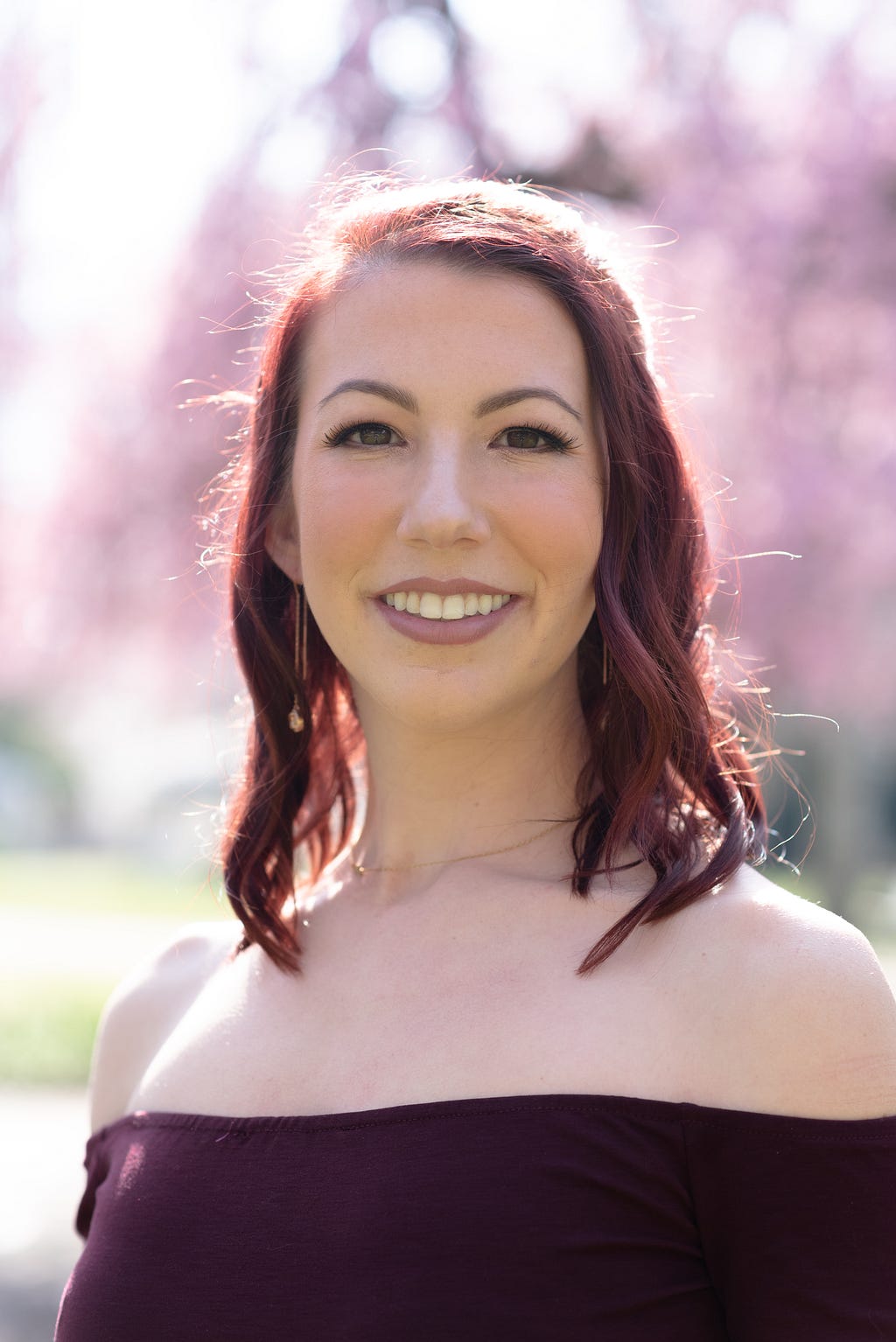
What specific strategies have you been using to promote and advance this cause? Can you recommend any good tips for people who want to follow your lead and use their social platform for a social good?
My platform has always been based upon my vulnerability, and I think that serves human connection, especially within this work. I am not an institution or organization just sharing facts about STIs or their stigma — I’ve lived it, I am living with it, and I’ve overcome it. I would not be where I am, or as aware as I am, without my own experience. I don’t think everyone is meant to disclose their diagnosis (whatever that may be) publicly, but I do believe authenticity and passion is key to establishing and maintaining that connection.
It is also imperative to note that authenticity misses the mark for some folks, especially in the human sexuality field. As stated previously, not everyone has understood my path or the reasoning behind it. Some have even vocalized their uncertainty and doubt, which hasn’t been easy from the mouths of those I once admired. This lack of acceptance is another reason as to why passion is vital — it gets you through. It’s a personal investment in something bigger than yourself, but also promotes that connection with those who are meant to receive, and are open to receiving your message.
What are your “5 things I wish someone told me when I first started” and why? Please share a story or example for each.
- People will Google you and your work in all its phases. Alongside my LinkedIn, people have found photos and tweets and plastered herpes across my face. The internet can and will be cruel. I have formed wonderful friendships and professional relationships via social media, but it hasn’t been without transgressions.
2. Not everyone will believe in you. I’ve been told that I would fail more times than I’ve been told I’d succeed. I’ve had men tell me to be less sexual in my work, or tone down the Carrie Bradshaw in favor of Jackie Kennedy. As a growing expert in human sexuality, I am still man-splained and critiqued on my field of expertise.
3. Not everyone will be as passionate as you about your subject. In every sexuality class, if there is an STI-related project, most of my colleagues know that herpes is “my thing.” There have been times that I’ve been so eager to talk about herpes for a school project that I shake in anticipation of the assignment.
4. Set boundaries early. As a future clinician, I am bound by my clinical ethics and guidelines. I cannot offer individualized advice or provide sex therapy. I recently turned off my DMs to make these boundaries clearer.
5. You can do it. I don’t think anyone (at least outside of my friend group), saw my work succeeding in the capacity it has. I was always successful in school and was cheered for academic rigor and accomplishments, but I don’t think anyone ever saw my ideas taking off beyond academia until they did.
You are a person of enormous influence. If you could inspire a movement that would bring the most amount of good to the most amount of people, what would that be? You never know what your idea can trigger. 🙂
I think that I am in the midst of the movement! There is already an established network of activists working to dismantle herpes stigma. The Herpes Activists Networking to Dismantle Stigma group, affectionately known as HANDS, has already grown since its launch in October. Increasing numbers of folks are talking about the stigma, and that’s really where the work happens!
Can you please give us your favorite “Life Lesson Quote”? Can you share how that was relevant to you in your life?
My favorite quote is by Jacqueline Kennedy Onassis. It reads, “I have been through a lot and have suffered a great deal. But I have had lots of happy moments, as well. Every moment one lives is different from the other. The good, the bad, hardship, the joy, the tragedy, love, and happiness are all interwoven into one single, indescribable whole that is called life. You cannot separate the good from the bad. And perhaps there is no need to do so, either.”
I have been a Kennedy aficionado for as long as I can remember and quickly developed an infatuation with the former First Lady. As I grew older, I did anything to learn and understand more about her life from various perspectives. At some point, I think during high school, I discovered this quote. It speaks not only to my herpes experience as it relates to my positive career path, but also my life as a whole. I could never be where I am, appreciate where I am, and where I may be able to go, without my past.
Is there a person in the world, or in the US whom you would love to have a private breakfast or lunch with, and why? He or she might just see this, especially if we tag them. 🙂
I’ve met Sarah Jessica Parker twice, so I would have to say Lady Gaga! I admire her perseverance and dedication to her dreams. I read stories about her ex-boyfriends and groups of classmates that dedicated themselves to discouraging her career. I’ve had so many people attempt to stop me or shift my direction away from the sexuality field because they assume that there isn’t much that I can accomplish with it. At 26, I felt fulfillment for the first time. There’s a photo of Lady Gage in tears over her Oscar. That was me under my desk when I first. I would love to chat with Lady Gaga about her experience of dedicating her life to her passion and following her dreams in the face of disapproval. Lady Gaga is someone who encompasses that authenticity I spoke about earlier. In the face of adversity, she remained true to her passions, goals, and most importantly, to herself — and the right people listened.
How can our readers follow you on social media?
Instagram: @sexelducation
Twitter: @sexelducation
This was very meaningful, thank you so much!
The Social Impact Heroes of Social Media: “Not everyone will believe in you.” was originally published in Authority Magazine on Medium, where people are continuing the conversation by highlighting and responding to this story.


